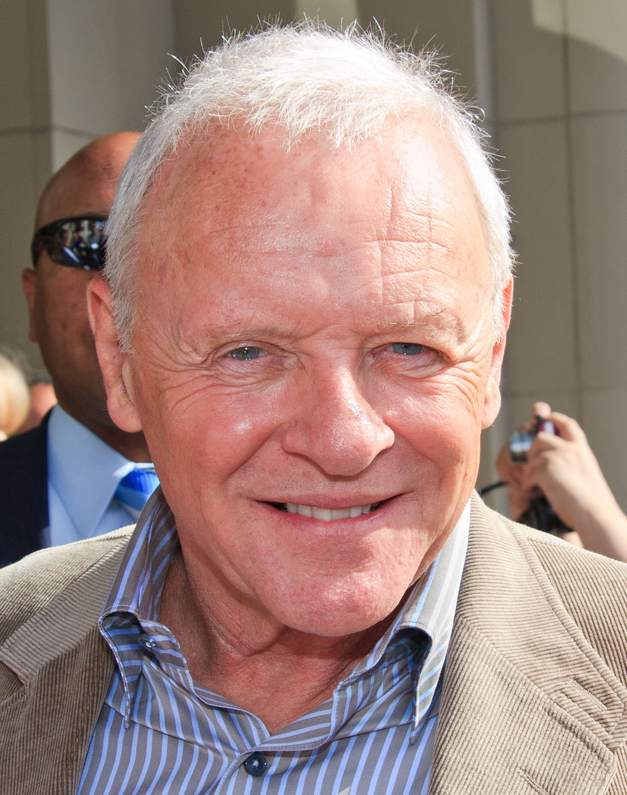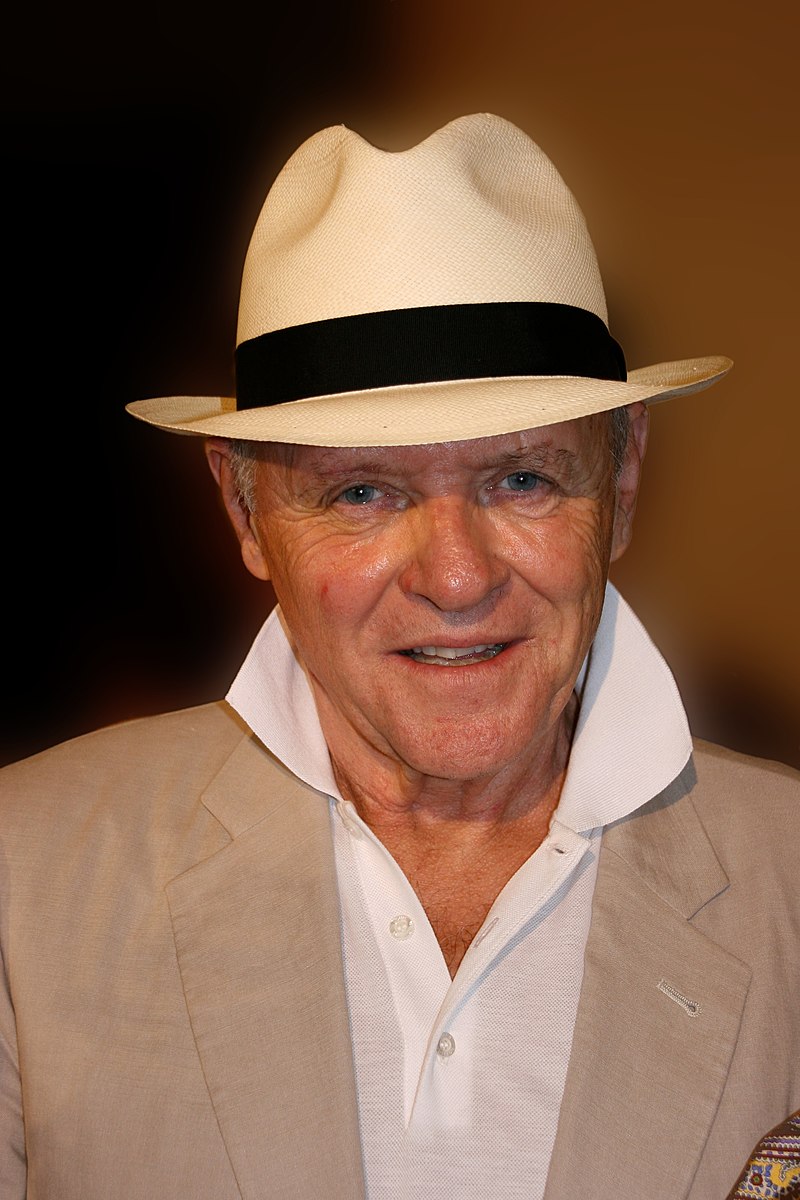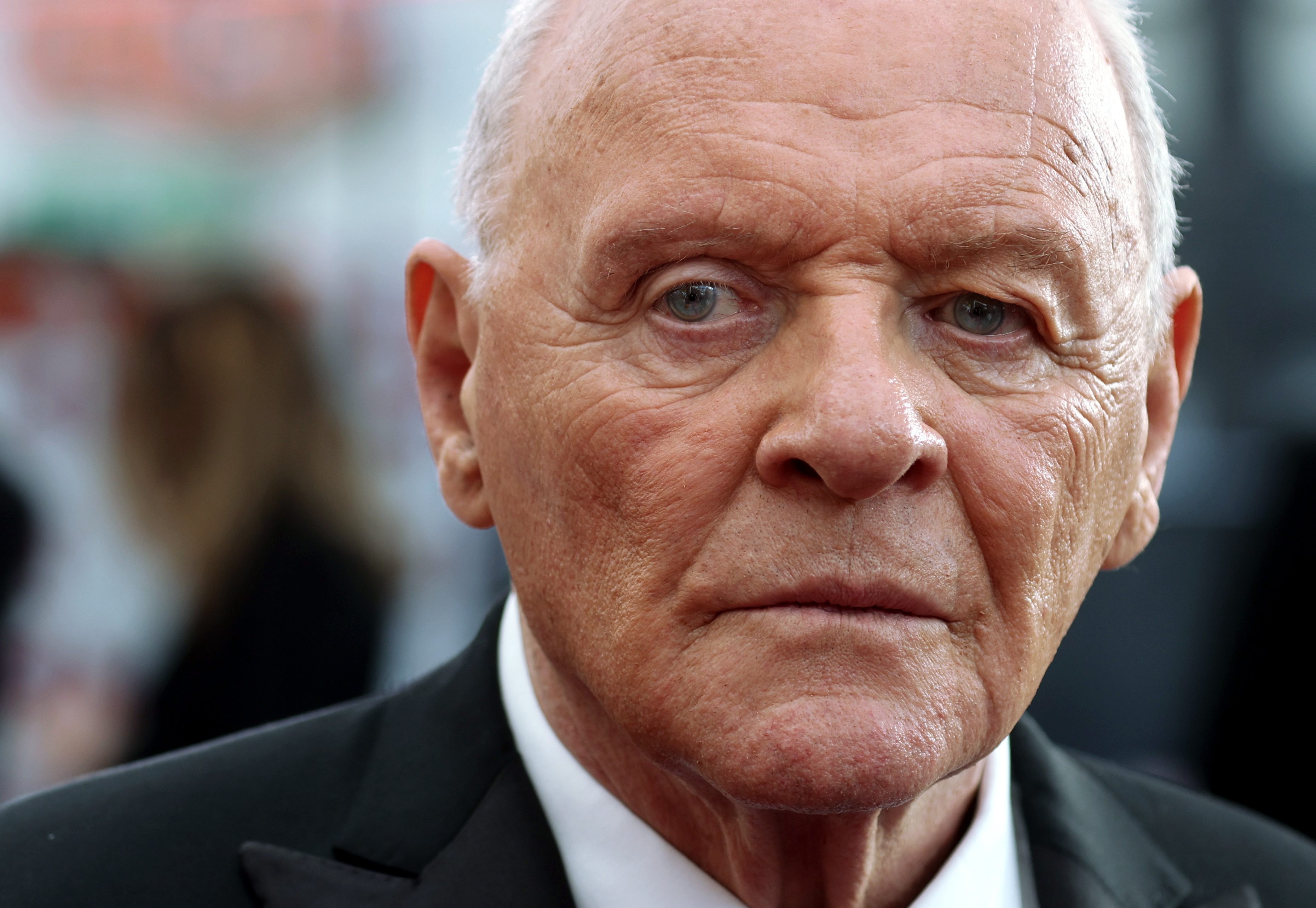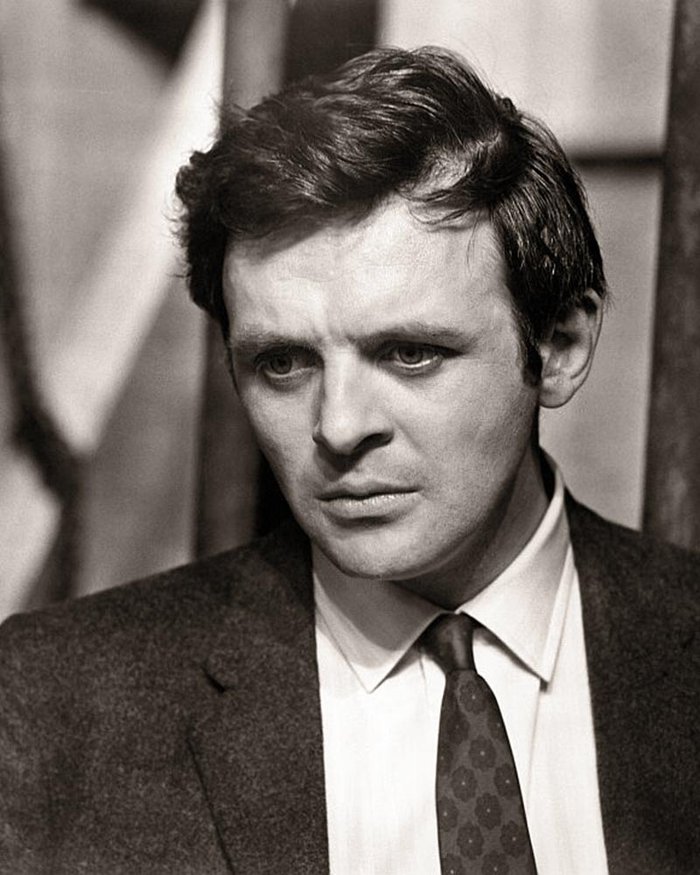Anthony Hopkins
Anthony Hopkins

Sir Philip Anthony Hopkins CBE was born on December 31, 1937, and is a renowned Welsh actor known for his remarkable performances on both screen and stage. With a career spanning decades, Hopkins has garnered numerous accolades, including two Academy Awards, four BAFTA Awards, two Primetime Emmy Awards, and a Laurence Olivier Award. In recognition of his contributions to the dramatic arts, he was knighted by Queen Elizabeth II in 1993 and received the Cecil B. DeMille Award in 2005 and the BAFTA Fellowship in 2008.
After graduating from the Royal Welsh College of Music & Drama in 1957, Hopkins further honed his craft at the prestigious Royal Academy of Dramatic Art in London. His talent caught the eye of legendary actor Laurence Olivier, who invited him to join the Royal National Theatre in 1965. At the National Theatre, Hopkins showcased his versatility in productions such as "King Lear," "Coriolanus," "Macbeth," and "Antony and Cleopatra." He received widespread acclaim and a Laurence Olivier Award for his role in the David Hare play "Pravda" in 1985. His last stage appearance was in a West End production of "M. Butterfly" in 1989.
Hopkins' early film credits include notable roles in "The Lion in Winter" (1968), "A Bridge Too Far" (1977), and "The Elephant Man" (1980). However, it was his portrayal of Hannibal Lecter in "The Silence of the Lambs" (1991) that catapulted him to international fame, earning him his first Academy Award for Best Actor. He later won a second Oscar for his role as an elderly man struggling with dementia in "The Father" (2020), making him the oldest recipient of the Best Actor award in Oscar history.
Throughout his career, Hopkins has delivered compelling performances in a wide range of films, including "The Remains of the Day" (1993), "Nixon" (1995), "Amistad" (1997), and "The Two Popes" (2019). He has also appeared in notable television projects such as "War and Peace" (1972), for which he won a British Academy Television Award, and HBO's "Westworld" (2016–2018).
With his extraordinary talent and versatility, Sir Anthony Hopkins has left an indelible mark on both stage and screen, solidifying his status as one of the greatest actors of his generation.
Philip Anthony Hopkins was born on December 31, 1937, in the Margam district of Port Talbot, Wales, to Annie Muriel and Richard Arthur Hopkins. His father worked as a baker, and Hopkins often reflects on his father's working-class values, which have deeply influenced his life. Despite his humble upbringing, Hopkins found solace in art, particularly painting, drawing, and playing the piano, rather than excelling academically during his school days.
In 1949, in an effort to instill discipline, Hopkins' parents sent him to Jones' West Monmouth Boys' School in Pontypool. However, he struggled academically and faced ridicule, which contributed to feelings of inferiority. He later attended Cowbridge Grammar School in the Vale of Glamorgan, where he continued to grapple with his academic performance and self-esteem issues.
Hopkins found inspiration in fellow Welsh actor Richard Burton, whom he met at the age of 15. While he admired Burton's talent, Hopkins clarified that they were not close friends despite growing up in the same area. He enrolled at the Royal Welsh College of Music & Drama in Cardiff, graduating in 1957, before completing two years of national service in the British Army from 1958 to 1960.
Following his military service, Hopkins moved to London to pursue his passion for acting, studying at the prestigious Royal Academy of Dramatic Art. It was during this time that he crossed paths with Burton again, as Burton prepared to take over Hopkins's role in Peter Shaffer's play "Equus." Hopkins held Burton and other iconic actors like Peter O'Toole in high regard, acknowledging their immense talent and larger-than-life personas.
Despite his early struggles and feelings of inadequacy, Philip Anthony Hopkins embarked on a journey that would lead him to become one of the most acclaimed actors of his generation, leaving an indelible mark on both stage and screen.
Anthony Hopkins began his professional acting career in 1960 with Swansea Little Theatre's production of "Have a Cigarette" at the Palace Theatre in Swansea. After several years performing in repertory theater, he caught the attention of legendary actor Laurence Olivier, who invited him to join the Royal National Theatre in London in 1965. Initially serving as Olivier's understudy, Hopkins had a breakthrough moment when he stepped into Olivier's role in a production of August Strindberg's "The Dance of Death" after Olivier fell ill. Olivier himself praised Hopkins's talent and performance, marking a significant turning point in Hopkins's confidence on stage.
Hopkins made his television debut in 1967 with a BBC broadcast of "A Flea in Her Ear." His first leading role in a film came in 1964 in "Changes," a short film directed by Drewe Henley. In 1968, Hopkins gained recognition for his portrayal of Richard the Lionheart in "The Lion in Winter," which earned him a nomination for the BAFTA Award for Best Actor in a Supporting Role. He continued to impress audiences with his performances in various television productions, including playing Charles Dickens in "The Great Inimitable Mr. Dickens" (1970) and Pierre Bezukhov in "War and Peace" (1972), for which he won the British Academy Television Award for Best Actor./cloudfront-eu-central-1.images.arcpublishing.com/prisa/7Q3L6CCXUNGHJNIZANAI5WBAWE.jpg)
Transitioning to the big screen, Hopkins appeared in notable films such as "The Looking Glass War" (1970) and "When Eight Bells Toll" (1971). He also began collaborating with director Richard Attenborough, starring as British politician David Lloyd George in "Young Winston" (1972) and British Army officer John Frost in "A Bridge Too Far" (1977). In addition to his film work, Hopkins continued to showcase his versatility on stage, earning acclaim for his portrayal of Dysart in the original Broadway production of "Equus" in 1974, for which he received the Drama Desk Award for Outstanding Actor in a Play.
Throughout the late 1970s, Hopkins further solidified his reputation as a versatile and talented actor with roles in a range of films, including "The Girl from Petrovka" (1974), "Juggernaut" (1974), "International Velvet" (1978), and "Magic" (1978). He also demonstrated his stage prowess by playing Prospero in a production of "The Tempest" at the Mark Taper Forum in Los Angeles in 1979. These early successes set the stage for Hopkins's illustrious career, which would see him become one of the most respected actors in the world.
References
- "Sir Anthony, Citizen Hopkins". CBS News. Associated Press. 13 April 2000. Retrieved 11 January 2020.
- a b c Crace, John (23 January 2012). "Anthony Hopkins: 'I've never really been close to anyone'". The Guardian. Retrieved 23 January 2015. I don't know where everyone gets the idea we were good friends. I suppose it's because we are both Welsh and grew up near the same town [Port Talbot]. I once went up to his sister's house to ask for his autograph which he gave me and the only other time I met him was in his dressing room in New York when he was performing in Equus.
- ^ "AP: Hopkins to Receive Cecil B. DeMille Award". IndieWire. Archived from the original on 28 December 2022. Retrieved 28 December 2022.
- ^ "From Lewis Hamilton to Twiggy: All the Celebrities Knighted by the British Royal Family". Vogue. 7 November 2018. Retrieved 28 December 2022.
- a b Verhoeven, Beatrice (15 March 2021). "Anthony Hopkins Becomes Oldest Best Actor Nominee at Oscars". The Wrap. Retrieved 15 March 2021.
- a b Martinelli, Marissa (26 April 2021). "Anthony Hopkins' Age Isn't the Only Noteworthy Thing About His Oscar Win". Slate. Retrieved 12 May 2021.
- a b c d e f "Anthony Hopkins: 'I don't have a single friend who is an actor'". The Telegraph. 27 October 2017. Archived from the original on 10 January 2022.































